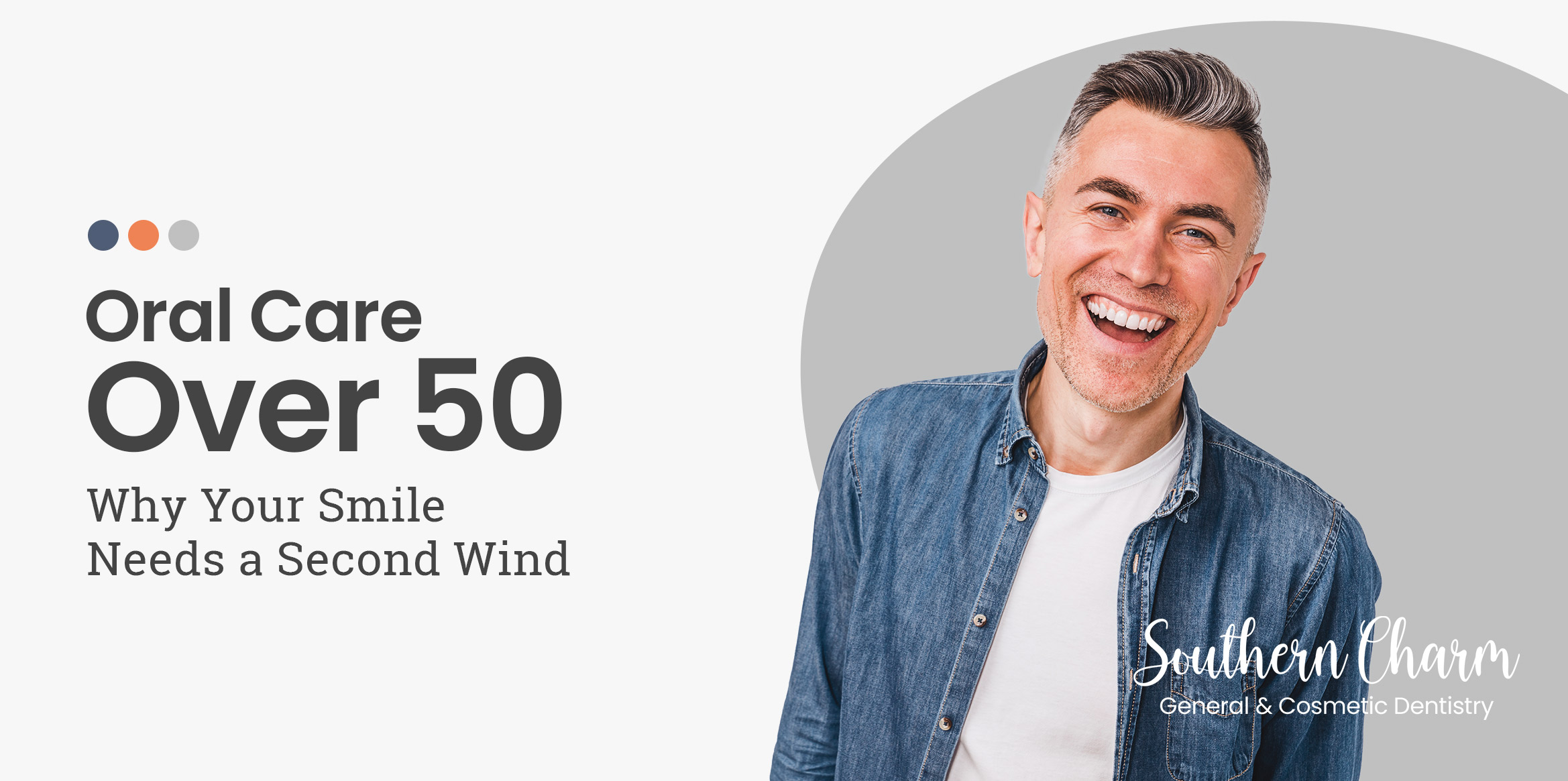Oral Care Over 50: Why Your Smile Needs a Second Wind
As we sail through life, each decade brings its own flavors of wisdom and trials. For those of us hitting the big 5-0 and beyond, our dental health demands a bit more spotlight. Yes, age graces us with wisdom, but it also ushers in dental dilemmas that can’t be ignored. Let’s delve into why preventive dentistry is our best ally in these golden years and how to keep our smiles as vibrant as ever.
The Evolution of Our Smiles
Aging is a natural artist, and our teeth are part of its canvas. After decades of munching, grinding, and savoring various treats, our teeth inevitably show some wear and tear. Enamel erosion, cracks, and increased sensitivity become our new companions, and the risk of decay rises.
Gum recession is another familiar foe. As our gums retreat, the exposed roots make our teeth more vulnerable to decay and sensitivity. Couple this with the dry mouth often caused by medications for chronic conditions, and we have a recipe for dental distress. Saliva is our mouth’s unsung hero, fighting off decay; when its production dwindles, our teeth pay the price.
New Dental Challenges On the Horizon
The risk of gum disease, or periodontal disease, escalates as we age. This isn’t just about sore gums; untreated gum disease can lead to serious infections and tooth loss. Plus, there’s a strong link between gum disease and other health issues like heart disease and diabetes, making dental care a non-negotiable part of our wellness routine.
Osteoporosis, particularly post-menopause for women, weakens bones, including the jawbone, which can result in tooth loss. And let’s not forget the rising risk of oral cancer with age, underscoring the importance of regular dental check-ups for early detection.
Living with chronic conditions like diabetes adds another layer of complexity. Diabetes impairs our ability to fight infections and heal wounds, making oral health a tricky battlefield. Medications we rely on might also have side effects that impact our dental health, further complicating the picture.
The High Cost of Neglect
Overlooking our dental health isn’t an option. Tooth loss affects more than our appearance; it hampers our ability to eat, leading to nutritional deficiencies, and impacts our speech and self-esteem. Poor oral health has far-reaching consequences, contributing to systemic issues like heart disease, stroke, and respiratory problems. Managing diabetes becomes even more challenging with periodontal disease in the mix.
Beyond the physical repercussions, neglecting our dental health can erode our quality of life. Pain, discomfort, and the social stigma of missing or decayed teeth can lead to withdrawal and depression.
Embracing Proactive Dental Habits
Despite the hurdles, we can take robust steps to maintain our dental health and keep our smiles gleaming. Regular dental visits are the bedrock of good dental care. Biannual cleanings and check-ups catch issues early, preventing serious problems down the road.
Daily oral hygiene is non-negotiable. Brushing twice a day with fluoride toothpaste and daily flossing keep plaque and tartar at bay. An antiseptic mouthwash can reduce bacteria and keep your mouth feeling fresh.
Hydration is another key player. Drinking plenty of water helps combat dry mouth, and chewing sugar-free gum can stimulate saliva production. A balanced diet rich in vitamins and minerals, especially calcium and vitamin D, supports both dental and bone health. Cutting back on sugary and acidic foods can protect your enamel from erosion.
For smokers, quitting is a game-changer. Tobacco is a major risk factor for gum disease and oral cancer; ditching the habit greatly improves both oral and overall health.
Lastly, managing chronic conditions with healthcare providers’ guidance is essential. Ensuring medications don’t harm your oral health and finding alternatives if they do can make a significant difference.
Final Thoughts
Our dental health journey is lifelong, but it takes on special significance after 50. By understanding the unique challenges we face and embracing proactive habits, we can prevent serious complications and enhance our quality of life. Our smiles are integral to who we are, and with dedicated care, we can keep them healthy and bright for many years to come.




